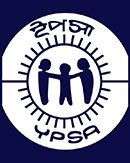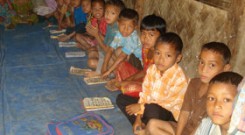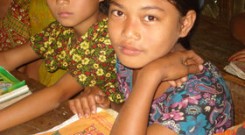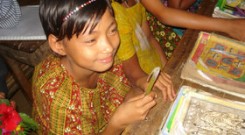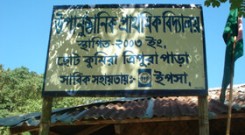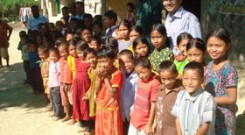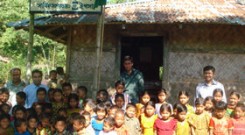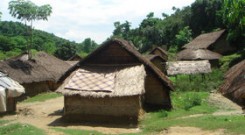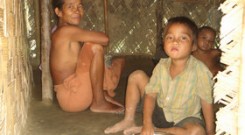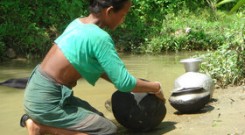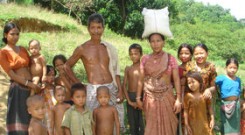Photo Gallery
Indigenous Community
More than thousands of indigenous families live in different parts of the hilly areas of Sitakund, Mirsarai & Fatikchory Upazilla under Chittagong District. They belong to the indigenous Tripura (Tripra) community. These people are deprived of all basic needs like; Education, Health, Land & Residence, Safe drinking water, discrimination of wages etc. Government or local govt. services do not reach to their door. Thus, the indigenous community lives a very distressing life in their poor Shelter made by bamboo and thatch on the slope of the hills. YPSA has implemented some development initiatives for the community.
Supported by
Action aid Bangladesh (Partial)
Major activities
Regular awareness & Motivation meeting, Established Indigenous Children Education Centre (ICEC) for indigenous Children, Advocacy with the Govt. education dept. & local Schoolteachers for the admission of indigenous children in the government schools . REFLECT Circle (REFLECT & ICT) , SELF-HELP Group formation & provide loan. Sharing meeting with local Govt. & administration to ensure indigenous peoples Rights. Sharing meeting with local Parliament Member (MP) to ensure indigenous peoples Rights. Formation a Cultural Team by the young people of Indigenous community at Kumira village. To observe Indigenous day (Rally, Gathering & cultural program ), Indigenous peoples Gathering on their Land Rights, Indigenous Child Education Forum (ICEF), Household Survey of Indigenous Community
Future Plan
Formation more Self-help groups to raise awareness and implement strategies to voice demands. Organise Community Circles to increase literacy rates and awareness. Establish a federation to represent indigenous communities. Leadership training for indigenous representatives.Dialogues with local Member of Parliament on rights issues. Awareness campaign and memorandum on indigenous children’s education rights. To arrange Satellite clinics for indigenous communities. Creation of linkages between the community and income generation service providers. To organize Skills and enterprise development training for indigenous people. Technical support to ensure safe drinking water technologies. Workshops with district authorities and central policy makers to raise awareness on indigenous issues. To organize information workshops for journalists.
